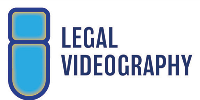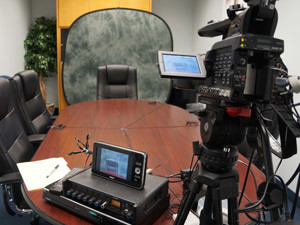The Role of Legal Videography in Depositions and Trials
Legal videography has actually emerged as a vital device in both depositions and tests, providing a diverse technique to documenting witness testaments. As legal professionals significantly recognize its worth, it prompts a deeper evaluation of how these visual records can affect juror understandings and trial results.
Significance of Legal Videography
Legal videography plays a critical function in the paperwork and discussion of depositions and tests. This specialized field incorporates technological skills with legal understanding to create a dependable document of procedures that can significantly influence instance end results. The aesthetic aspect of legal videography improves the understanding of witness testament, allowing jurors and judges to observe not just the spoken words but likewise the temperament, feelings, and body language of the witnesses.

The value of lawful videography extends beyond the court room; it also plays an essential duty in preserving evidence for future reference, whether for appeals or additional lawsuit. Therefore, its combination right into the lawful process is vital for making certain a reasonable and accurate depiction of the facts, inevitably adding to the search of justice.

Refine of Legal Videography
While catching the nuances of depositions and trials, the procedure of legal videography entails numerous essential steps that make sure top notch, exact recordings. At first, a specialist lawful videographer prepares by reviewing the instance products and understanding the particular needs of the deposition or trial. This preparation includes familiarizing themselves with the participants and the context, which helps in catching essential information.
On the day of the recording, the videographer sets up the necessary equipment, which usually consists of high-def cams, microphones, and correct lights. Ensuring optimal angles and sound quality is essential, as it directly affects the efficiency of the recording. The videographer interacts with attorneys and participants to establish methods, making certain that every person recognizes the recording procedure.
Throughout the deposition or trial, the videographer carefully tape-records the proceedings, paying close focus to both spoken and non-verbal hints. legal videography. This consists of recording the behavior and reactions of witnesses and attorneys. After the session ends, the videographer may modify the footage for quality and compliance with lawful standards, creating an end product that properly mirrors the procedures for future reference and usage in lawful contexts
Benefits in Depositions
The incorporation of videography in depositions supplies numerous benefits that enhance the total process of gathering evidence. One key advantage is the capacity to record witness testaments with visual and acoustic read this fidelity, offering a more exact representation of the witness's disposition, tone, and body movement. This multidimensional technique allows lawyers and juries to analyze reliability better than conventional written transcripts alone.
Furthermore, videographed depositions act as an effective tool for protecting testimony. Must a witness become inaccessible for trial, their taped deposition can be played in court, ensuring that their proof remains easily accessible and relevant. This element significantly minimizes the risk of losing critical info that can impact situation end results.
Additionally, making use of lawful videography promotes better prep work for attorneys. Evaluating video clip footage permits legal groups to examine and improve their strategies, determining toughness and weak points in their cases. This preparatory benefit can result in even more engaging discussions in court.
Last but not least, videography enhances the general professionalism of the deposition visit the website process, instilling confidence in clients relating to the thoroughness of their lawful depiction. By leveraging modern technology, attorneys can substantially boost the performance of depositions.
Effect On Trials
In many trials, the integration of videography can significantly influence the presentation of evidence and the jury's assumption. Lawful videography records witness testaments and crucial evidence in a dynamic format, allowing jurors to involve with the product on numerous degrees. This visual element enhances the storytelling aspect of a test, giving context and psychological vibration that traditional text-based evidence may do not have.
In addition, video recordings can function as powerful tools for impeachment during cross-examination. When disparities arise in between a witness's previous declarations and their courtroom testimony, video clip proof offers an unbiased reference that can persuade jurors' viewpoints. This immediacy and quality can boost the credibility of an event's narrative while concurrently undermining opposing debates.
Furthermore, the use of videography can help simplify complicated details, making it a lot more available to jurors that may struggle to realize elaborate details provided entirely via verbal testament. By integrating visuals with acoustic info, lawful videography can improve retention and understanding, ultimately affecting the jury's decision-making procedure. The effect of videography in tests prolongs past mere looks; it plays an essential like it duty in shaping the legal landscape and end results.
Future Trends in Legal Videography
As we look toward the future of legal videography, numerous emerging patterns assure to improve its role within the court. One substantial trend is the combination of fabricated intelligence (AI) in video evaluation and editing - legal videography. AI can improve the procedure of recognizing key moments in taped depositions, permitting attorneys to rapidly access pertinent web content, thereby improving effectiveness in instance prep work
Additionally, the rise of online truth (VIRTUAL REALITY) and boosted reality (AR) technologies is expected to transform exactly how jurors experience proof. By submersing jurors in a substitute setting, these modern technologies can provide a more profound understanding of complicated situations, causing even more educated considerations.

Furthermore, the enhancing demand for remote depositions, accelerated by the COVID-19 pandemic, will likely continue. Legal videographers will certainly require to adjust to brand-new software application and platforms to guarantee top notch recordings in online settings.
Lastly, the growing focus on information safety will require stricter protocols for saving and sharing video clip evidence. As the legal landscape evolves, lawful videographers have to remain abreast of these patterns to maintain their importance and performance in the judicial process.

Final Thought
In recap, lawful videography offers a vital function in the judicial procedure, enhancing the stability of depositions and trials. By catching the subtleties of witness testaments, this medium not just preserves crucial evidence however also aids in offering information successfully to jurors. The importance of visual documents in assessing credibility and helping with interrogation can not be overstated. As modern technology continues to advance, legal videography is poised to additional change its role within the legal landscape.